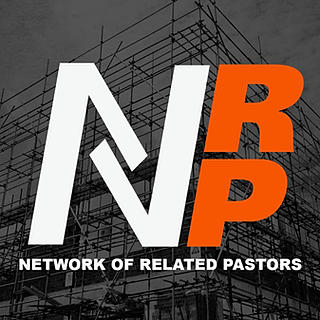Leadership in Context Episode 20 Show Notes
- NRP
- Jan 29, 2019
- 4 min read

Leadership in Context with Keith Tucci
Episode 020
Ask Yourself, part 1
Galatians 6:4 But each one must examine his own work, and then he will have reason for rejoicing in himself, and not in regard to another.
Self-Evaluation
This starts with us evaluating ourselves, but it doesn’t end there. Most of us are either too hard on ourselves or too easy on ourselves. It becomes too subjective, it isn’t clear enough, and we either get so depressed we want to quit or we get so inflated that we aren’t much good to anyone.
Self-evaluation uses tools and people around us to give us honest feedback on where we are on specific things so we can keep improving.
In ministry, we are always telling people they need to improve, to be equipped, to be held accountable. Yet often the most unaccountable and unchallenged person in the church may be the guy who is doing the preaching. Something has to change there.
Evaluation Questions
1. What do I do well?
2. What do I do poorly?
3. What needs to be done that I tend to avoid?
4. What do I do that needs definite improvement?
5. What can I invest in others so they can do some of the things that I am doing?
1. What do you do well?
We all have different things that we do well. As a ministry leader, we have to be good at teaching and preaching. But I think there are some pastors who are great as administrators and organizers, some who are great at personal ministry and counseling, some who are great at networking and community evangelizing, some pastors who are visionaries, etc. While they are all good at teaching and preaching, there may be something that they do better than that. It is important to identify what you are really good at.
Years ago, Starbucks (who I don’t give any of my money to) realized that their profit margins were going down. They discovered they had abandoned the core of their business—coffee. They were offering too many other things in their store. Coffee is what they were good at. That is how we should think, as well. What is it that we are good at? Identify it.
If you are good at something, you should continue to get better at it. You should polish that gem that God has given you. Don’t rest on your talents and let that thing deteriorate. We can give a lot of time, energy, anointing, and focus to a lot of things that are just OK, but those things aren’t going to drive the vision and the leadership of the church like our best gift can. That doesn’t give us a license to neglect something that is legitimately important. But if you are in the hamburger business, you better serve a really, really good hamburger. If you can make good fries and milkshakes with it—great. But you better have a good hamburger. The people selling good hamburgers are always looking at their recipe, their vendors, how hot the flame is, how good the wrapper is—they are looking at every element of the hamburger on a regular basis so they can maintain their market share and keep doing their best. We are so used to dealing with problems that we can let problems dictate to us what we work on. The downside of this is that it causes us to neglect what we are good at.
Challenge
Ask yourself, ask others around you: “What am I good at? What is the thing that I bring to the table that is the best thing?” All of us have certain strengths. Some of us are one-talent people, and some are five-talent people. Whatever talent or talents that God has given you, you should be able to clearly identify and continue to polish them. What is your best skill?
2. What do I do poorly?
We need to be honest, identify what we do poorly, and get some help understanding it. I’m referring to something you do poorly because you are just not wired that way; I’m not talking about something you do poorly due to neglect or avoidance, but something you really aren’t good at. I don’t like technology. I’m not good at it. I don’t like it, but I understand it is necessary. I just do the minimum I have to do with technology and then get people to help me with the rest. I don’t de-value technology. A lot of times in ministry, pastors feel like they are the chief cook and bottle washer. They get knee-deep in something they really aren’t good at. They would be far better focusing their attention on the things they are better at and building a team to help with the other things.
Challenge
Take this question to heart. Get in a safe place. Have a cup of coffee with someone. Take out some paper and a pen. Ask them the questions—"What am I really good at? What am I not so good at?” Ask them direct questions—"Would the church be better, would the church grow, would the church be more effective if I was better at that or if I wasn’t spending as much time on this or that?” (Sometimes people don’t want to shoot straight from the hip, but if we ask them a direct question, we will get a much better answer.)
Don’t get caught up in personal self-evaluation. Take an online test. Invite some people in. This week, take some time to discover what you are good at and what you aren’t so good at. Next week, I’ll break down the other self-evaluation questions.
Join us next week as Keith Tucci continues to put leadership truth in the context of the local church. And as always, please like, share, rate/review, and invite others to listen. See you next week!







Comments